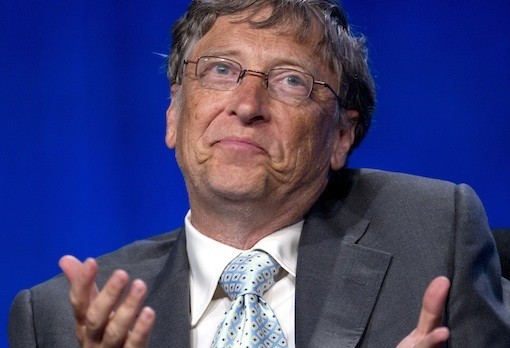Buffett Chronicles Strong Year In Annual Letter But Bull Market Outshined Berkshire Again
Post on: 22 Июнь, 2015 No Comment

Follow Comments Following Comments Unfollow Comments
Warren Buffett, fielding questions at the 2013 Berkshire Hathaway shareholder meeting. (AP Photo/Nati Harnik, File)
It was a good year for Berkshire Hathaway Berkshire Hathaway in 2013, as the conglomerates businesses performed well. “Very well,” to quote Warren Buffett in the chairman and CEO’s annual letter to shareholders published Saturday morning.
While he touted the operating success of Berkshire’s disparate subsidiaries and record annual earnings ($19.5 billion in net income), Buffett was relatively quiet on the topics like succession planning and the performance of the firm’s stock portfolio, topics that have been top of mind in recent years.
Buffett touted the purchase of Heinz, in which Berkshire ponied up the financing and partnered with private equity firm 3G Partners to actually operate the ketchup-maker, as a possible template for future deals. in which the company will use its massive wallet to get stakes in assets that it won’t need to operate.
“With Heinz, Berkshire now owns 81⁄2 companies that, were they stand-alone businesses, would be in the Fortune 500,” Buffett writes. “Only 4911⁄2 to go.”
Of those remaining companies, Buffett owns quite a few in the investment portfolio, including the so-called “Big Four”: American Express American Express. Coca-Cola Coca-Cola. IBM and Wells Fargo Wells Fargo. Berkshire increased its stakes in each during 2013, but Buffett’s portion of the portfolio may not have kept pace with the roaring bull market in U.S. stocks.
“In a year in which most equity managers found it impossible to outperform the S&P 500, both Todd Combs and Ted Weschler handily did so,” he writes, discussing the two fund managers he hired over the past few years to help manage the portfolio.
“I must again confess that their investments outperformed mine. (Charlie says I should add “by a lot.”) If such humiliating comparisons continue, I’ll have no choice but to cease talking about them.” Combs and Weschler are each managing more than $7 billion of Berkshire’s money, Buffett added.
The billionaire also revisited the “Buy American” theme he famously shared in the midst of the financial crisis, highlighting the success of Berkshire’s 2009 takeover of railroad operator BNSF.
“At the time I called the transaction an ‘all-in wager on the economic future of the United States,’” he writes. “Indeed, who has ever benefited during the past 237 years by betting against America?”
Buffett said he and Berkshire Vice Chairman Charles Munger will continue building on the firm’s per-share value by following the playbook that has worked for decades: improving the earnings power of the subsidiary operating businesses; making bolt-on acquisitions within those units; enjoying growth in the companies owned in the investment portfolio; buying back Berkshire shares at a discount to intrinsic value; and occasionally firing the “elephant gun” for major acquisitions.
Berkshire’s book value per share, Buffett’s preferred measure of valuation, increased 18.2% in 2013, a stellar return in most years but still 14.2 points behind the 32.4% total return delivered by the S&P 500. That marks the second straight year and fourth of the last five that Berkshire has underperformed on that measure.
The letter also detailed what amounts to a rare misstep for the billionaire. When energy giant TXU was purchased in a leveraged buyout at the top of the market in 2007, Berkshire picked up about $2 billion of the debt behind the deal, a decision Buffett made without consulting Munger.
With the former TXU (now known as Energy Future Holdings Energy Future Holdings ) on the verge of bankruptcy. Buffett acknowledged the misguided bet in this year’s letter. Berkshire sold its holdings for $259 million in 2013. Couple that with the $837 million in interest it received since 2007 and the ill-fated purchase wound up as a pre-tax loss of $873 million. “Next time I’ll call Charlie,” Buffett quips.
Still, he found plenty to highlight from 2013 when it came to the company’s operating businesses. Insurance subsidiaries like GEICO keep throwing off cash and the company’s giant utility business MidAmerican Energy made a big deal of its own by buying NV Energy for $5.6 billion. Unlike publicly-traded utilities, MidAmerican also has the luxury of plowing all its profits back into its business and deals, rather than using them to deliver required dividends to investors.
Berkshire’s “Powerhouse Five” — a quintet of businesses outside its insurance operations — delivered $10.8 billion of pre-tax earnings in 2013, up $758 million from the prior year. Aside from MidAmerican the group includes BNSF, Iscar, Lubrizol and Marmon.
In a section of the letter previously published last week by Fortune , Buffett reiterated his oft-stated views on buying productive assets opportunistically, highlighting a 1986 farm purchase and a 1993 deal for a New York City retail property near NYU.














